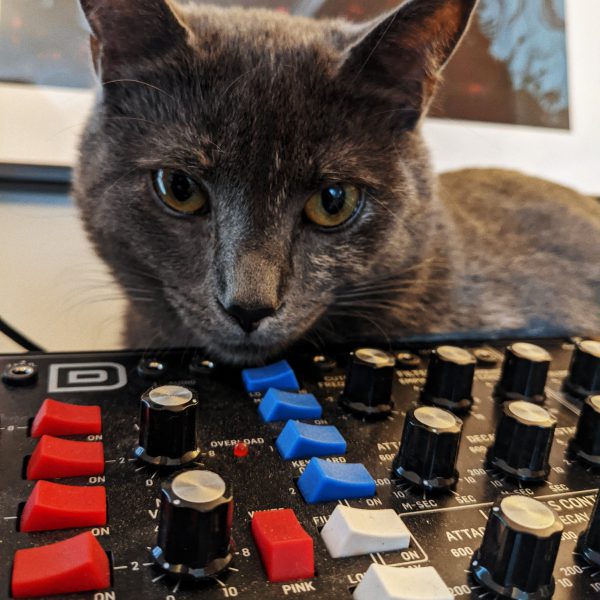
Fern poses with her Behringer Model D synthesizer. From Mouth Full of Corpses on Twitter.
fern please dust your synth
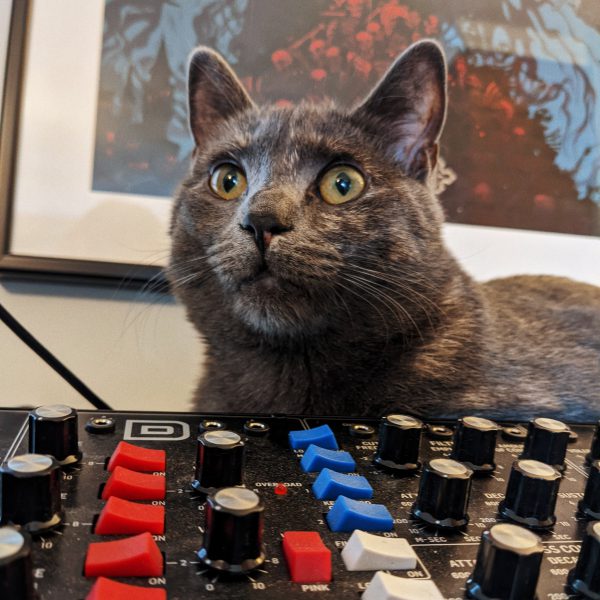


Fern poses with her Behringer Model D synthesizer. From Mouth Full of Corpses on Twitter.
fern please dust your synth

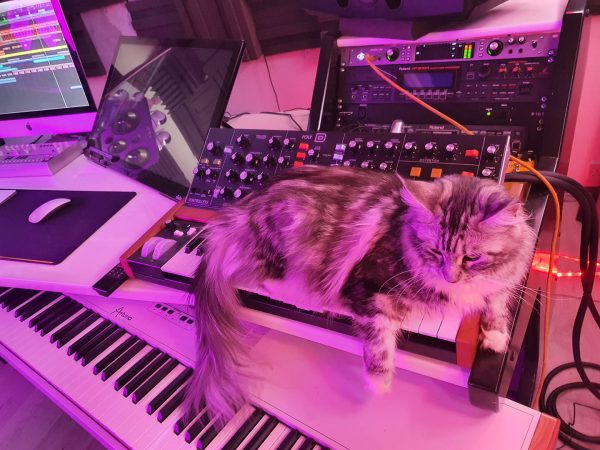
This cat has found a nice napping spot on top of a Behringer Poly D. We also see an Arturia keyboard and a Rolland VP9000 voice processor. From Steve Jones via Facebook.
The Behringer Poly D takes their Model D and expands it to four voices along with a wood-paneled keyboard reminiscent of the original Minimoog. The Roland VP9000 was released in 2000 as one of the first samplers to allow vocal manipulation of speed, pitch, and formant independently in real time.
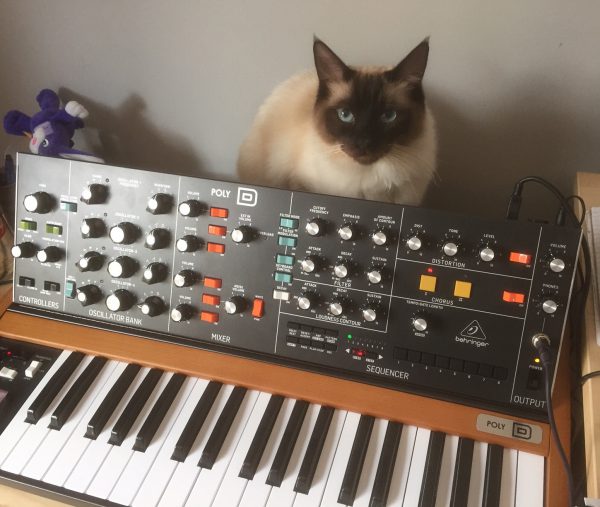
Monty definitely likes the new Behringer Poly D. Submitted by Julian Guffogg via our Facebook page.
The Behringer Poly D is a four-voice version of their Model D synthesizer that recreates the sound of an original Minimoog Model D. They can be used for 4-voice polyphony or stacked atop one another for an eight-oscillator voice. It also has a keyboard reminiscent of the original, and a sequencer and arpeggiator.
You can see a previous post featuring Monty here.
Lilly poses proudly with a Novation controller and Behringer Crave and TD-3 synthesizers. And she gets cuddles. What more could one want?

This rather handsome long-hair cat is posing with a Behringer Model D synthesizer, a keyboard, and two Korg Volcas, the first one of which is a Volca Keys. Submitted by Ricardo Branco via our Facebook page.
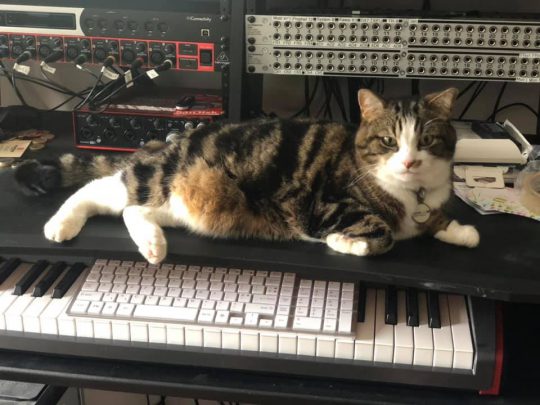
Apropos of yesterday’s Wordless Wednesday post, we have a geometrically proportioned CatSynth Pic today. With the balance of colors (red for the Behringer and Focusrite on the left vs the gray on the right) and the stacked keyboard, this could be right out of our architectural series.
Submitted by Pete Dolan via our Facebook page.